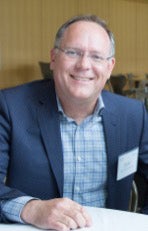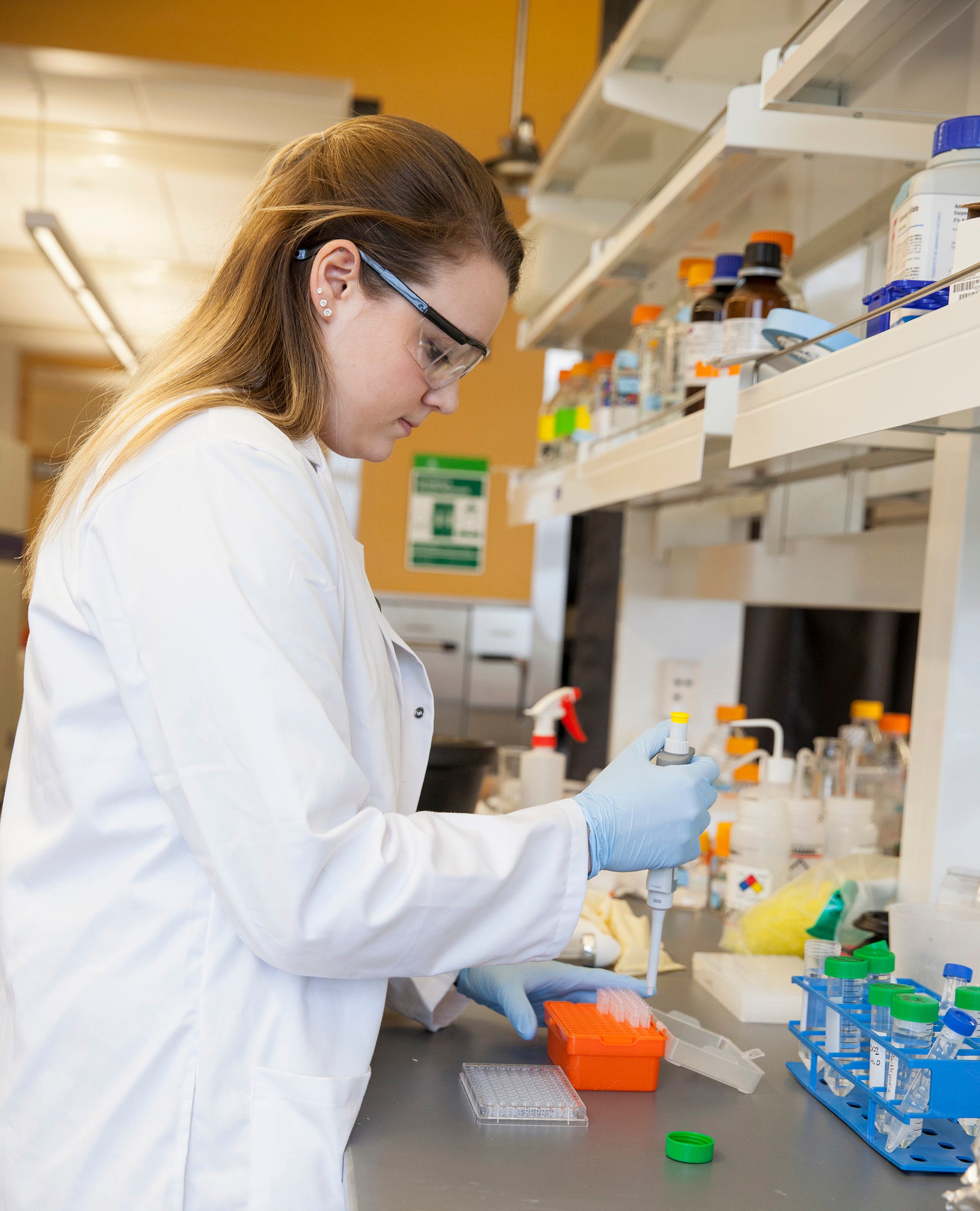KINGSTON, R.I., March 30, 2017 — Jennifer Bairam, a junior in the University of Rhode Island’s Bachelor of Science in Pharmaceutical Sciences (BSPS) program, had been eager to get real-world exposure to potential career paths in the pharmaceutical industry.
The BSPS mentorship program for juniors and seniors gave Bairam the opportunity she wanted. It pairs students with alumni who are well established in their fields, said Erin Edmonds, coordinator of experiential education for the College of Pharmacy’s Pharmaceutical Science Program. “The mentors have had interesting career paths. The students see that it is not always a straight line, and it’s best to explore and see what’s out there,” she said.
The BSPS program prepares students for a variety of pharmaceutical careers, including research, quality assurance and drug development — making insights into the world outside of the classroom particularly important.
Bairam, a Hooksett, N.H., native, was matched with Jeff Cehelsky, who earned his bachelor’s degree in pharmacy at URI in 1987 and is vice president of clinical operations at Alnylam Pharmaceuticals in Cambridge, Mass. “I couldn’t ask for a better mentor,” Bairam said of Cehelsky. “We talk about the industry and his work, regulations for clinical trials or drugs that are in production.”
“I really am committed to creating the next generation of persons interested in science and medicine,” said Cehelsky, who specializes in strategic drug development and biotechnology.

In his second year as a BSPS mentor, he exemplifies that commitment in his preparation for monthly calls with Bairam, researching discussion topics in advance, asking her for input and sometimes assigning “homework” after the calls.
Mentors must commit to being in contact with their students at least once a month by email, phone or in person; and many do much more. Several host students at their workplaces, review resumes and cover letters, recommend internships and employment possibilities and offer networking opportunities, Edmonds said.
Bairam shadowed Cehelsky at Alnylam’s headquarters during winter break. “It was like being a fly on the wall. It opened my mind and definitely has me thinking a little differently about my career,” she said.
“I insist the students come up here for an on-site visit so they can understand the industry beyond the abstract,” said Cehelsky, of Sudbury, Mass. “I want to give them exposure to how companies and teams approach drug discovery and development in the real world.”
The mentorship program began in spring 2015 to great student interest. Fifteen applied, but with just four mentors, Edmonds had to turn down 11. Within a year she had recruited 17 mentors, but student demand still outpaces that number. Edmonds, who spends summers matching each student to a mentor — usually along career interests — ultimately hopes to recruit 50 mentors, one for each member of a given junior class.
Initially, volunteers were recruited from a list of active alumni; now many are referred by current mentors. “Many are excited to participate because the program offers direct contact with a student, and the mentor gets to see the outcome in real time,” Edmonds said.

